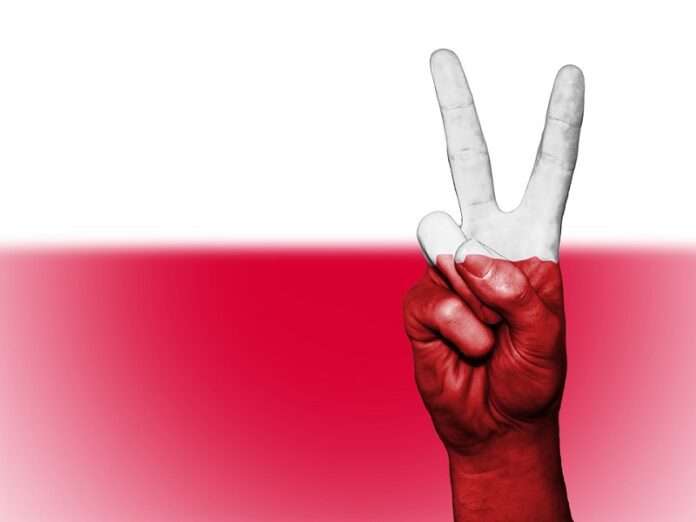Public opinion in Poland on the NATO-Russian proxy war in Ukraine is more important than anywhere else in the West due to its pivotal logistical role in the conflict. Farmers also earlier blockaded the border to protest the influx of low-cost Ukrainian grain that ravaged their domestic market so the precedent exists for angry citizens to once again complicate the flow of arms and equipment to there. This is crucial to keep in mind after discovering that most Poles now want peace in Ukraine even at Kiev’s expense.
The publicly financed Centre for Public Opinion Research (CBOS) published the paywalled results of their latest survey on this subject that were reported on in English by Notes From Poland. They found that 55% of Poles in November believed that it’s best to “strive above all for an end to the war and return of peace even if Ukraine has to give up part of its territory or part of its independence” compared to the 39% who held this view in September. This was attributed to Trump’s victory and Ukraine’s recent losses.
The same explanation was put forth when accounting for the 61% of Poles who believed in November that Ukraine will indeed have to cede part of its territory for peace compared to the 44% who thought this in September. These data points are significant since they prove that Poles as a whole no longer believe that Ukraine can achieve its maximum objectives, thus making it extremely unlikely that they’ll change their views on the question of dispatching Polish troops there.
The results of the European Council on Foreign Relations’ summertime survey that were published in July showed that just 14% of Poles supported this scenario at the time. Considering what CBOS just discovered, it can therefore be surmised that this already dismal percentage dropped as a result of Trump’s victory and Ukraine’s recent losses. That in turn contextualizes the Polish government’s reluctance to contribute to the post-conflict peacekeeping mission that’s now being discussed.
Here are ten background briefings for readers to review to learn more about Poland’s calculations:
* 18 June: “Poland Was Just As Much To Blame As Britain For Sabotaging Spring 2022’s Peace Talks”
* 30 August: “Poland Finally Maxed Out Its Military Support For Ukraine”
* 20 September: “Ukraine’s Refusal To Exhume & Properly Bury The Volhynia Genocide’s Victims Enrages Poles”
* 20 October: “Top Polish Media Laments Their Country Being Excluded From The Ukrainian Endgame”
* 22 October: “The Latest Survey Shows That Poles Are Getting Fed Up With Ukrainian Refugees & The Proxy War”
* 3 November: “Poland’s Military Loan Proposal To Ukraine Shows That Warsaw Is Finally Wising Up”
* 8 November: “Poland’s Deputy Prime Minister Accused Zelensky Of Wanting To Provoke A Polish-Russian War”
* 3 December: “Poland’s Rotating Council Of The EU Presidency Is A Chance To Rebalance Relations With Ukraine”
* 9 December: “The Polish Opposition Just Challenged The Ruling Coalition To Prove Its Nationalist Credentials”
* 15 December: “Poland’s Participation In Any Ukrainian Peacekeeping Mission Could Lead To World War III”
They’ll now be summarized for the reader’s convenience if they don’t have time to read them all.
Poland thought that it could turn Ukraine into its junior partner throughout the course of the conflict while inflicting a strategic defeat on Russia and thus becoming the US’ top ally. None of this came to pass after Ukraine reversed the dynamics in their relationship by allying more with Germany, Russia survived the West’s unprecedented proxy warfare and sanctions onslaughts, and the US prioritized ties with Germany and Ukraine over those with Poland. All of this led to Poland recalculating its strategic plans.
Next May’s presidential election hangs heavily over everything that it does till then. The ruling liberal-globalists want to replace the outgoing conservative-nationalist president with one of their own, which would enable them to effect radical ideological changes in Poland by preventing presidential vetoes. Likewise, the opposition wants to retain control of the presidency in order to obstruct their rivals’ plans, and both are now channeling public opinion by championing tougher policies towards Ukraine.
Accordingly, there’s practically no chance that either party will support dispatching Polish troops to Ukraine – including as peacekeepers after a ceasefire, armistice, or peace treaty – until at least after the election since they’d lose a lot of votes if they did, which would ruin their respective domestic plans. Even after the election, however, each will then jockey ahead of fall 2027’s parliamentary elections. This timeline further reduces the possibility that either of them will risk public ire by supporting this scenario.
In the event that troops are dispatched to Ukraine, this would only be possible upon the President’s approval after receiving a request from the Prime Minister, so either both parties would be blamed if the roles remain divided or it’ll fall entirely on the liberal-globalists if they capture the presidency. The same goes for if the army is then ordered to break up any border blockade by protesting Poles. The domestic imperatives described in this analysis might therefore result in this being politically impossible to pull off.







